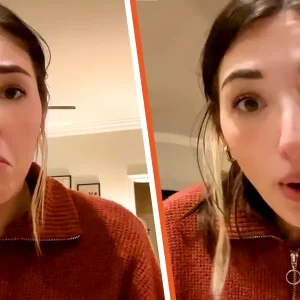Lucy, a recent widow, moved in with her son Connor and daughter-in-law Eve for support. Initially, Eve took care of Lucy, but soon she started delegating all the household chores to her. Lucy, wanting to teach a lesson, took charge of Christmas dinner preparations for nine people.
“I’ll give you the money before you leave,” Eve instructed Lucy for grocery shopping, a departure from their usual joint trips. Lucy, wanting to shift dynamics, cooked an impressive Christmas feast. Guests showered compliments, and Lucy felt a sense of accomplishment.
“Aunt Lucy, this food is amazing! Did you cook all of it yourself?” one of Connor’s friends exclaimed.
“I did, Ross,” Lucy replied, proud of her efforts. Connor beamed with pride, sensing his mother’s desire to contribute positively.
Post-feast, Eve recognized her mistake and apologized, realizing Lucy’s workload.
“I didn’t realize how much you do around the house. I’m so sorry,” Eve admitted.
Lucy, understanding but firm, said, “I just need you to know that as much as I want to help around the house, I’m old, and my knees aren’t the same anymore.”
In the end, the Christmas miracle occurred. Eve acknowledged her oversight, and they returned to a more balanced relationship.
“It’s more than fine. We make a great team,” Lucy reassured.
Now, with Eve massaging Lucy’s knee, they share a moment of understanding and harmony.





